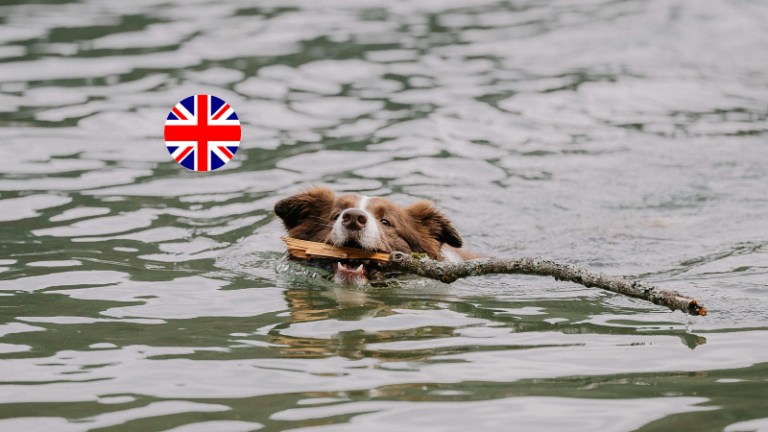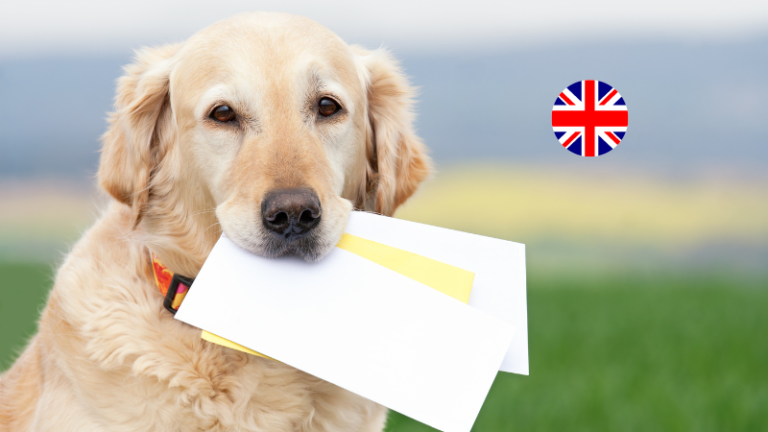
Dog tax in Munich
If you own or bring a dog to Munich, registration for dog tax is mandatory within two weeks. You can register online, by email, post, or in person, providing personal and dog information. Processing takes a few weeks, with an annual fee of 100 euros per dog, or 800 euros for fighting dogs without a negative certificate. Payment is due by January 15th annually, without reminder. Further details and forms are available on the City of Munich website.

Warning of Poison Baits
As a pet owner, it’s distressing to know that some individuals may intentionally harm your beloved furry friends. Poison baits, often found in popular dog areas in Munich, pose fatal risks to animals. Yet, as a responsible dog owner, you can proactively take steps to mitigate this danger.
To stay up-to-date, it makes sense to join WhatsApp groups that exchange location-specific information for dog owners. Ask other dog owners on your next walk if they know of such groups. Often, this information can be quickly obtained through small talk. We also came across a website that publishes current reports on poison bait. This site seems to inform very promptly, so we are happy to recommend it:
https://dogorama.app/de-de/giftkoeder/
There are dog trainers in Munich who specialize in the topic of poisoned bait. Especially in early dog training, it is useful to start such training early so that your dog does not consider everything that is on the ground as interesting. If you are looking for a dog school or trainer who will help you protect your dog from poisoned bait, then „Anti-Giftköder Training“ is the right search term for you.
The signs of poisoning in a dog can vary and depend on the type of toxin ingested. It’s crucial to act quickly if you suspect your dog has eaten a poisoned bait. Here are some common symptoms to watch for:
- Vomiting and diarrhea: Frequent and early signs, sometimes mixed with blood.
- Increased salivation: Some toxins can lead to excessive drooling.
- Tremors or seizures: Neurotoxins can cause muscle twitches, tremors, or even severe seizures.
- Lethargy or weakness: A poisoned dog may be unusually weak or have difficulty getting up.
- Breathing difficulties: Difficulty breathing, rapid breathing, or even respiratory distress are serious symptoms.
- Altered behavior: Changes in behavior, such as aggression, anxiety, or confusion, may also indicate poisoning.
- Loss of coordination: Stumbling or difficulty walking may indicate neurological issues.
- Excessive drinking or urination: Some toxins can affect kidney function, leading to altered drinking and urination habits.
- Yellowing of the skin or eyes (jaundice): A sign of liver involvement.
- Bleeding: Unusual bleeding or blood in the urine/stool may occur, especially with rat poisons.
If you notice any of these symptoms in your dog, it’s important to seek immediate veterinary care or visit an emergency clinic. Early detection and treatment are crucial for the dog’s chances of survival. Provide the veterinarian with as much information as possible about the possible toxin exposure and observed symptoms to enable prompt and targeted treatment.
We’ve compiled a comprehensive list of emergency clinics, including those with 24-hour availability. It’s advisable to bookmark the following link for quick access in case of a life-threatening situation with your dog:
Notdienst tierärztliche Kliniken – München
Having this direct access to vital contact information can be crucial in an emergency and save valuable time.

Rules for dogs in Munich
The Dog Regulation of the City of Munich specifies where dogs must be leashed, where they are prohibited, and where they can run freely. Playgrounds, certain areas of municipal parks, and bathing or lounging areas of public pools are off-limits to dogs. Throughout Westpark and on paths within certain areas of municipal parks, leashes are required. Large adult dogs must be leashed within the city center inside the Altstadtring, pedestrian zones, traffic-calmed areas, outdoor events, and in the immediate vicinity of playgrounds. Fighting dogs must be leashed unless they possess a valid negative certificate. Special regulations apply to fighting dogs of categories 1 and 2.

Dogs on Public Transportation
You can travel with one dog per passenger for free as long as you have a valid ticket (MVV ticket or Deutschlandticket). For each additional dog, you must purchase a ticket according to the child fare. Small dogs in a basket or bag typically travel for free.
Dogs that could endanger passengers must wear a muzzle.
On authorized regional trains, dogs – unless they are transported in suitable containers – are only carried on the condition that they are kept on a leash.
All dogs must be on a short leash at all times, both on vehicles and at S-Bahn and U-Bahn stations! Additionally, „fighting dogs“ according to the „Bavarian Regulation on Dogs with Increased Aggression and Dangerousness“ in its amended version are not allowed on vehicles or at S-Bahn and U-Bahn stations.

Dog Parks in Munich
Munich boasts numerous dog-friendly areas where your four-legged friend can romp and explore freely. Among the most popular is the English Garden, with its expansive green spaces and the flowing Eisbach, providing a haven for dogs. The Olympic Park also offers ample room to frolic, along with a dedicated dog area. The Hirschgarten is another favorite destination, allowing dogs to roam freely while you enjoy Munich’s largest beer garden. For variety, there’s the Westpark with its vast lawns and Riemer Park, featuring a large lake and numerous green spaces, making it a popular destination for both humans and dogs.

Café Visits in Munich with Your Dog
If you’ve ever been to another major European city outside of Munich, you’ll appreciate how dog-friendly our city is. It’s rare here for your beloved four-legged friend not to be welcomed.
Café Visits with Your Dog in Munich:
In Munich, you can generally expect that bringing your dog to a café won’t be an issue. Many cafés even greet dogs with a water bowl outside the entrance.
Tips for Café Visits with Your Dog in Munich:
- Choose a café with plenty of space for your dog to move around freely.
- Ensure your dog is kept on a leash and doesn’t disturb other guests.
- Bring along some treats to reward your dog.
- Make sure your dog has enough water.
In Munich, there are plenty of dog-friendly cafés where you can enjoy a relaxed time with your furry companion. Here are some recommended options:
- Café im Vorhoelzer Forum: This café not only offers a cozy atmosphere and delicious food but also a beautiful terrace overlooking the city, where dogs are welcome.
- Café am Weißenburger Platz: A charming café in the heart of Haidhausen, known not only for its delicious cakes and coffee specialties but also for its dog-friendly attitude.
- Lost Weekend: Located near Gärtnerplatz, this café is a popular meeting spot for coffee lovers and also provides a relaxed atmosphere for dogs.
- Café Glücklich am Park: As the name suggests, this café is situated right by the park and offers a lovely terrace where you can relax with your dog while enjoying a cup of coffee.
- Café Frischhut: Known for its delicious pretzels and sweet treats, this café is a great choice for a relaxed stop with your dog during a stroll through the city center.
- Café Katzentempel: Despite the name suggesting cats, this café is also accessible to dogs and offers a cozy atmosphere as well as a selection of vegetarian and vegan dishes.

FAQ for Dog Owners in Munich
In Munich, there are several places where you can take your dog swimming. A popular spot is the dog area in the „Olympiapark,“ which provides access to water for dogs. The „Riemer Park Dog Area“ also offers opportunities for your dog to splash and swim. Additionally, some lakes in the vicinity of Munich are dog-friendly, such as the „Feringasee“ or the „Langwieder See,“ where dogs are allowed to swim in certain areas. However, it’s advisable to ensure before visiting that dogs are allowed at the specific location and what regulations apply.
Yes, in Munich, there are various opportunities for dog owners to meet with other dog owners and go for walks or engage in activities with their dogs. There are organized dog walks, dog meetups in parks, and even specialized dog sport groups that train regularly.
In Munich, similar vaccination and health requirements apply as in other parts of Germany. Important vaccinations include standard ones such as rabies, parvovirus, distemper, and leptospirosis. It’s crucial to undergo regular veterinary examinations to ensure your dog remains healthy and all required vaccinations are up to date.
Munich has specific regulations for the ownership of „dangerous“ dogs, categorized as „breed-restricted.“ This includes certain breeds such as Pitbull Terriers, American Staffordshire Terriers, and Bull Terriers. Owners of such dogs must meet special requirements, including obtaining a specific permit and adhering to strict safety measures.
Munich offers a variety of options for dog sports and other activities such as agility, flyball, dog dancing, and more. You can inquire about courses and events at local dog schools, clubs, or online platforms and register your dog accordingly.
Are you searching for a reliable and caring dog sitter in Munich to look after your furry friend when you’re away? Don’t worry, we have the solution for you! With Petbnb, you can easily find a suitable dog sitter in your area. Our platform connects dog owners with trustworthy dog sitters who will lovingly care for your furry companion while you’re on the go. Whether you need daycare or overnight services, with Petbnb, you’ll find the perfect dog sitter for your needs.








